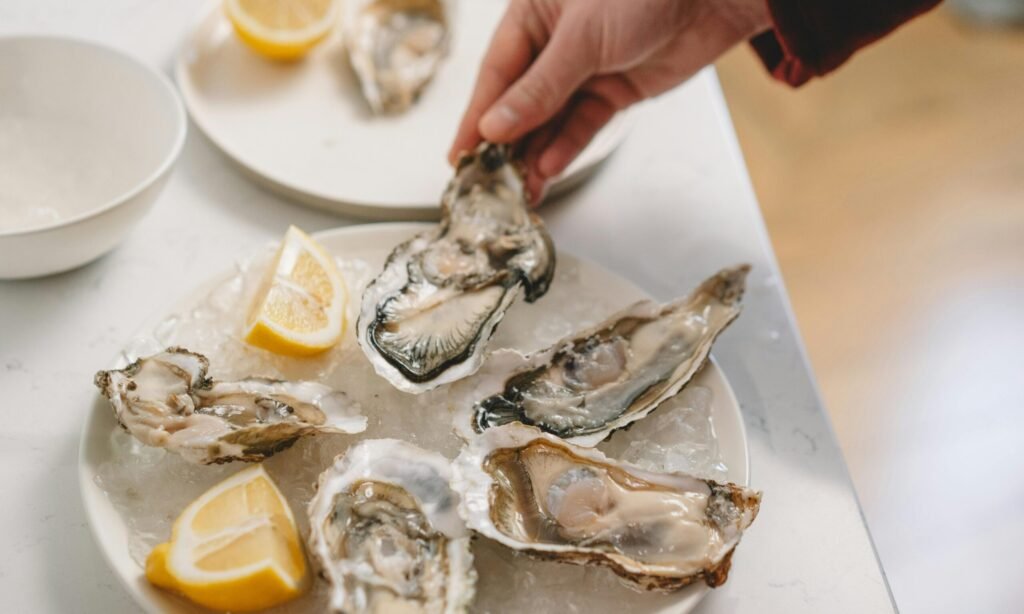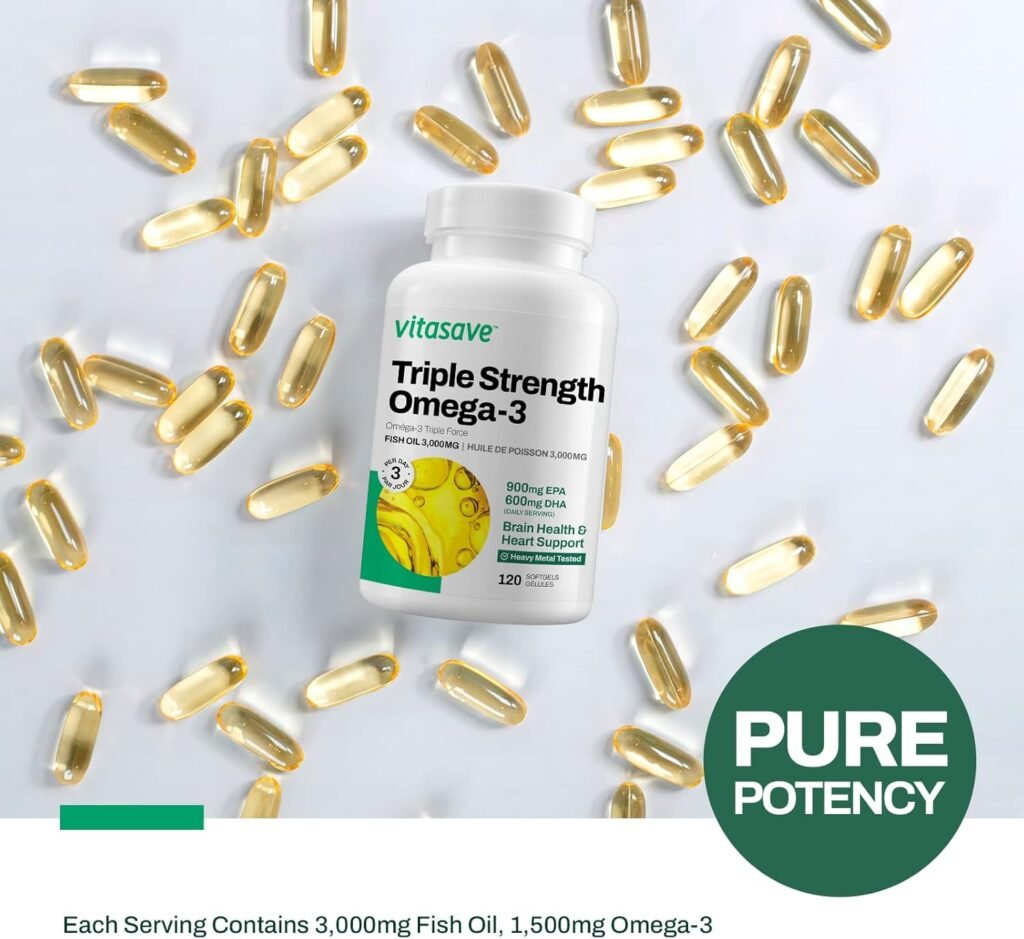Testosterone is one of the most essential hormones in the human body. While it is often associated with men, testosterone plays a vital role in both men and women. It supports muscle growth, bone density, mood regulation, energy levels, and overall reproductive health. As people age, testosterone levels naturally decline; however, lifestyle factors, including diet, can significantly influence the progression of this decline.

Certain foods are known to naturally support testosterone production by providing essential vitamins, minerals, and nutrients. Incorporating these foods into a balanced diet may help maintain healthy hormone levels and promote long-term well-being.
This article explores the top 10 foods that have been shown to support or boost testosterone levels, backed by research and nutritional science.
1. Oysters
Often referred to as a natural aphrodisiac, oysters are one of the richest sources of zinc, a mineral strongly linked to testosterone production. Zinc deficiency is commonly associated with reduced testosterone and impaired fertility. Oysters also contain amino acids and omega-3 fatty acids, which further support hormone health.
- Nutritional highlights: Extremely high in zinc, vitamin D, and selenium
- Why they help: Zinc directly influences testosterone synthesis in the testes
2. Fatty Fish (Salmon, Mackerel, Sardines)
Fatty fish are packed with omega-3 fatty acids, which play a role in regulating hormone production. They also provide vitamin D, another nutrient essential for testosterone. Regular consumption of fatty fish has been linked to improved sperm quality and hormone balance.
- Nutritional highlights: Omega-3s, vitamin D, protein
- Why they help: Support hormone regulation and reduce inflammation, which can suppress testosterone

3. Eggs
Eggs are one of the most versatile foods for hormone health. The yolk contains cholesterol, which is a building block for testosterone. Eggs also provide vitamin D and protein, making them a nutrient-rich option for supporting muscle development and energy levels.
- Nutritional highlights: Protein, vitamin D, healthy fats, cholesterol
- Why they help: Cholesterol acts as a precursor to testosterone production
4. Lean Beef
Lean cuts of beef are excellent sources of protein, zinc, and iron—nutrients that directly contribute to testosterone levels. Additionally, beef liver is particularly high in vitamin D. Moderation is key, as excessive red meat intake may have other health implications, but lean beef remains a strong option for boosting testosterone.
- Nutritional highlights: Protein, zinc, iron, vitamin D
- Why they help: Provides essential nutrients linked to healthy testosterone production.
5. Spinach and Leafy Greens
Leafy greens like spinach, kale, and Swiss chard are rich in magnesium, a mineral that plays a role in testosterone regulation. Research suggests that magnesium supplementation can improve testosterone levels, especially in physically active individuals.
- Nutritional highlights: Magnesium, iron, vitamins A, C, and K
- Why they help: Magnesium supports testosterone bioactivity and reduces oxidative stress
6. Pomegranates
Known for their antioxidant properties, pomegranates have been linked to improved cardiovascular health and hormone balance. Some studies indicate that regular pomegranate consumption may boost testosterone and improve mood.
- Nutritional highlights: Polyphenols, vitamin C, antioxidants
- Why they help: Protects testosterone-producing cells from oxidative damage.
7. Ginger
Ginger is more than a spice—it’s also a natural testosterone booster. Research shows that ginger supplementation may increase testosterone levels and improve sperm health, likely due to its antioxidant and anti-inflammatory effects.
- Nutritional highlights: Antioxidants, bioactive compounds like gingerol
- Why they help: Reduces inflammation and supports hormone-producing enzymes.
8. Nuts (Almonds, Walnuts, Brazil Nuts)
Nuts provide healthy fats, magnesium, and selenium—nutrients associated with improved testosterone levels. Brazil nuts are especially notable for their high selenium content, which plays a role in testosterone synthesis and sperm health.
- Nutritional highlights: Healthy fats, magnesium, selenium, protein
- Why they help: Support hormone production and overall reproductive health
9. Garlic and Onions
Both garlic and onions contain compounds that may stimulate the release of luteinizing hormone (LH), which signals the testes to produce more testosterone. They also have antioxidants that reduce oxidative stress, indirectly supporting hormone health.
- Nutritional highlights: Sulfur compounds, antioxidants, flavonoids
- Why they help: May stimulate hormone-regulating pathways and support testosterone production.
10. Avocados
Avocados are rich in monounsaturated fats, vitamin E, and boron—a trace mineral that may play a role in testosterone regulation. Their combination of healthy fats and micronutrients makes them ideal for hormone health.
- Nutritional highlights: Monounsaturated fats, boron, vitamin E
- Why they help: Provide nutrients linked to improved hormone balance and testosterone function
Other Foods Worth Noting
While the top 10 foods stand out, several others may contribute to healthy testosterone levels, including:
- Berries (antioxidants for hormone protection)
- Bananas (bromelain enzyme may influence testosterone)
- Olive oil (supports hormone production)
- Beans and legumes (protein, zinc, and fiber)
Lifestyle Factors That Influence Testosterone
Food plays a significant role, but it’s important to consider lifestyle as well. Even the best diet cannot fully compensate for poor habits that lower testosterone. Factors include:
- Sleep: Consistently poor sleep reduces testosterone levels.
- Exercise: Resistance training and high-intensity workouts support testosterone production.
- Stress: High stress increases cortisol, which can lower testosterone.
- Weight management: Excess body fat is linked to lower testosterone.
Combining a nutrient-rich diet with healthy lifestyle practices provides the best support for maintaining healthy testosterone levels.
In conclusion, testosterone plays a critical role in physical, mental, and reproductive health. While levels naturally decline with age, incorporating certain foods into the diet may help maintain hormone balance. Oysters, fatty fish, eggs, lean beef, leafy greens, pomegranates, ginger, nuts, garlic, and avocados all provide essential nutrients that support testosterone production.
By making thoughtful choices about diet and lifestyle, it is possible to promote hormone health naturally, helping sustain energy, mood, and vitality throughout life.
Disclaimer
The information provided in this article is for general informational and educational purposes only and is not intended as medical advice. While certain foods may support healthy testosterone levels, individual results can vary, and dietary changes alone may not address underlying medical conditions. Always consult with a qualified healthcare professional, nutritionist, or physician before making significant changes to your diet, lifestyle, or treatment plan, especially if you have existing health conditions or are taking prescribed medications.

Pingback: The Silent Decline: Signs of Low Testosterone in Men You Should Never Ignore - katzuh